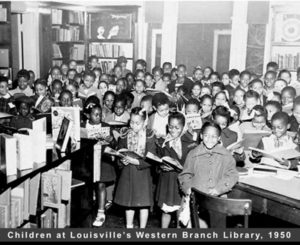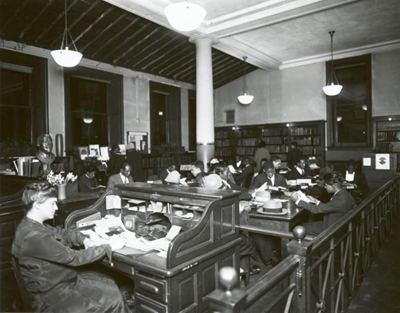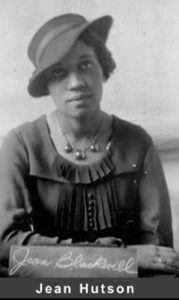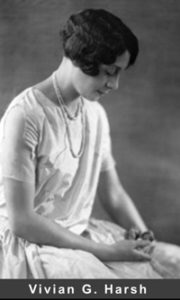Black libraries and Black librarians hold a special place in our society. They are the bearers and conveyors of knowledge. They educate, inform and protect, shaping the development of our minds and scholarship from a young age. As educator and activist Mary McLeod Bethune wrote in 1939 for the Journal of Negro History, “the ideals, character and attitudes of races are born within the minds of children; most prejudices are born with youth and it is our duty to see that the great researches of Negro History are placed in the language and story of the child. Not only the Negro child but [the children] of all races should read and know of the achievements, accomplishments and deeds of the Negro.” Her sentiment applied not only to children, but to people of all ages and races, and has been faithfully carried forward by Black librarians.

Ask a young Sonia Sanchez who was interviewed by The HistoryMakers on April 19, 2003. In her interview, she so poignantly described her discovery of New York’s Schomburg Library after answering an ad in the New York Times and being hired by telegram for a writing position at a local firm but rejected on site when the office learned that she was African American. Sanchez recounts: “I got off at 135th Street, and I passed this building, and lo and behold it said Schomburg Library, and I said to a guard who was standing outside smoking, “What kind of library is this?” He said, “Lady, go inside. Just sign a book. Go inside. The woman inside would tell you. Miss Hutson’s her name.” So, I walked inside, and I knocked on the glass door, and the woman turned around. She said, “Yes, dear. Can I help you?” and I said, “What kind of library is this?” She said, “This library is called the Schomburg. It has books in here only by and about Black folks.” And then I said with my smartass self, I said, “There must not be many books in here then.” From that day forward, Sanchez was given a full introduction to the world of African American literature by Jean Blackwell Hutson, the legendary librarian who served as director of the Schomburg for over thirty years and transformed it into one of the premier institutions for the study of Black history in the country.
Here in Chicago, another librarian made an impact on the lives of thousands who came through the doors of the George Cleveland Hall Library – Vivian G. Harsh. The late journalist Vernon Jarrett tells of how he frequented the library as a young man when he first arrived in Chicago, and on one occasion, Harsh introduced him to the famous Harlem Renaissance poet Langston Hughes, “And she took me over there and introduced me to him. And on the way out she said, “Now he lives in New York, but he hardly ever visits Chicago and does not come to the library. So, young man, I just want you to know that if he needs to read a lot, what does that make for you? You’ve been reading his poetry, haven’t you, ever since you were a little boy, and he still needs a library.”
Libraries have also served as a haven for many. Ask former press secretary Avis LaVelle who talks about her library card, “Each of us had our own library card and we’d take our little field trips over there. During the summer, we’d read as many books as we could and get the stickers, you know, so we’d participate in their summer competitions. And, my family didn’t have any money. So, we weren’t going places for summer vacation. So, our summer vacations were, vacations that we took vicariously through our reading.” For 2019 Tyler Prize winning climate change scientist Warren Washington, his library card proved to be a catalyst during his formative years, “I can remember as a young boy, one of my prize possessions was a library card. I thought it was a fantastic place just to go and browse through and, bring home books. I was very curious about science, and so often the books I would get would be people like Einstein and George Washington Carver. It would be a mixture of Black and white scientists and even women scientists. I was just impressed with their biographical stories.”
Newspaper columnist Clarence Page tells of how the library proved to be the communications tool when President John Kennedy was assassinated: “When I was a kid, in those days before Google and the Internet and all, I would go to the public library–that’s another place I would hang out. But I’ll never forget, we had one of those classic old-school librarians who didn’t let you talk above a low whisper, wanted the place quiet. But all of a sudden, here she was bringing out this portable radio to the front desk and plugging it in and turning it up to top volume. And me and everybody else knew something weird is going on because she did not bring a radio out here and start making noise. And I’m hearing this guy reporting from Dallas that the president has been shot. Everybody asks now, where were you when Kennedy was shot. I remember very well. I was at the library.”
Today, libraries and librarians still play important roles–with the coming of the digital age–as places where a collection like The HistoryMakers can be shared and accessed by people around the world alongside the documents, photos and materials that have fascinated and awakened the curiosity of scholars for decades. There is still much work to be done to preserve and make accessible the stories and culture of African Americans throughout this nation’s history, and the seminal role of Black librarians and libraries will continue well into the future.



